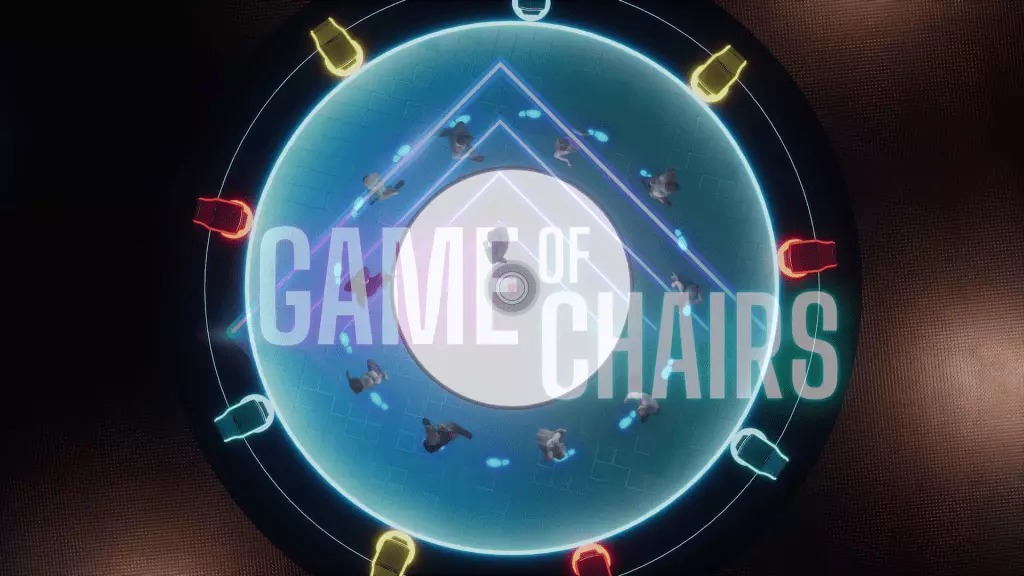In an era where entertainment constantly battles for viewers’ attention, traditional formats such as game shows are being revived and reimagined. One of the striking examples is Banijay Entertainment’s latest offering, “Game of Chairs,” which promises a twist on the beloved childhood game of musical chairs. This format isn’t just a nostalgic trip down memory lane; it embodies the crossroads where contemporary engagement meets classic gameplay. The blend of competition with nostalgia seems like an astute strategy, aiming to attract not just families, but individuals who yearn for simpler times while still embracing modern competition dynamics.
However, the question remains—can a simple remix of an age-old game truly capture the complexities of today’s entertainment landscape? There’s a fine line between nostalgia and innovation, and many may find themselves torn between appreciating the familiar and craving something groundbreaking. While Macarena Rey, CEO of Shine Iberia, touts it as a “dynamic format with international appeal,” the success of such a show often hinges on execution rather than concept.
As traditional broadcasters navigate the tumultuous waters of digital transformation, BBC Studios is making waves by hiring Robi Stanton, a prominent figure in the streaming world, as its new chief for the Australian and New Zealand regions. With an illustrious career that includes tenures at Warner Bros and CNN, Stanton comes equipped with a wealth of knowledge that may just provide the lifeline the BBC needs in a saturated market.
Yet, it begs the question: is hiring seasoned executives enough to combat the rapid shifts occurring in how audiences consume content? The digital landscape doesn’t operate solely on leadership but hinges on understanding cultural shifts and technological advancements as well. While the strategic expansion into streaming and partnerships, like the recent collaboration with Nine Network, appears promising, it is crucial for BBC Studios to recognize that merely replicating successful formats may not suffice. They need to evolve and expand their audience’s expectations beyond just familiarity.
Turning to the streaming world, “Sankranthiki Vasthunam” has recently shattered records on Zee5 Global and Zee5 Telugu, boasting an astounding viewership of 13 million in merely 12 hours. Such statistics paint a promising picture for content creators and platforms alike, suggesting that a well-received film can translate swiftly into streaming success. Anil Ravipudi’s direction and the engaging narrative resonate with viewers, showcasing how regional stories can thrive globally in the right setting.
However, these numbers also highlight a disturbing trend. The entertainment industry’s relentless pursuit of metrics can overshadow the artistic value of content creation. As we celebrate record-breaking viewership, we must ponder—does this signify true success, or is it merely luring audiences into a cycle of consumption without substantive engagement? The pressure to produce ever-greater viewership can lead to content that prioritizes quantity over quality, and that is a dangerous path.
The Future of Content Creation
As the industry pivots towards more engaging formats and strives to capture younger demographics, it is imperative to acknowledge that innovation should not come at the expense of depth. Content that resonates with audiences often emerges from staying true to artistic integrity while simultaneously adapting to innovative mediums. For the industry to thrive, a balance must be struck—one where the allure of nostalgia doesn’t negate the potential for authentic storytelling.
In a landscape increasingly driven by data, creativity should not bow to analytics alone. The future of entertainment lies in fostering environments where creators can experiment with both the old and the new, pairing the comfort of the familiar with the thrill of the uncharted. Only by doing so can organizations find sustainable ways to engage audiences, rather than chasing fleeting trends.
Each of these developments carries profound implications for audience engagement and content evolution. As we celebrate wins in the industry like “Game of Chairs” and “Sankranthiki Vasthunam,” it’s equally vital to navigate with caution. The key to a successful future lies in embracing change without losing sight of the art that defines entertainment itself.


Leave a Reply